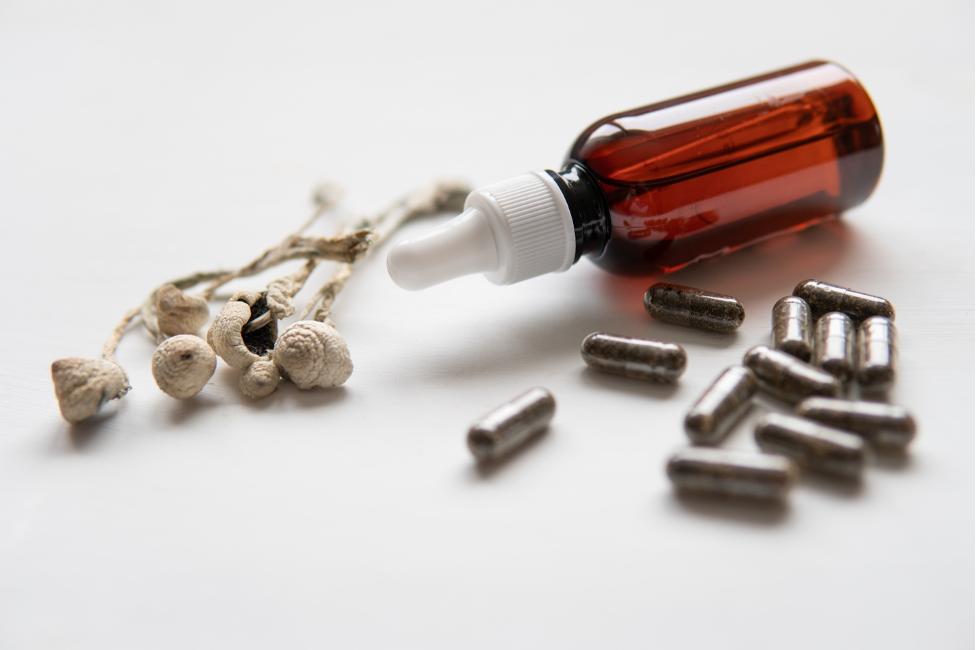Since 2010, microdosing has been a popular approach to enhancing energy and productivity in Silicon Valley, assisting in the discussion and resolution of strategy and code difficulties. It has gained traction among progressive health activists outside Valley biohackers. Many of the most used compounds for microdosing are prohibited, making them difficult to obtain.
Microdoses typically range between 10 and 20 micrograms, or one-tenth to one-twentieth of a standard dosage. The ultimate objective is to get the substance’s beneficial benefits without suffering any adverse consequences (hallucinations, sensory shifts, and other extreme experiential side effects).
Common Substances for Microdosing
While the word "microdosing" is often associated with the use of psychedelic drugs, it may also refer to the use of a wide range of other chemicals, such as nootropics and "smart drugs."
Nootropics are natural or manufactured drugs that may not lead to addiction or have harmful side effects. Examples include nicotine and caffeine. "Smart drugs," like Ritalin, are synthetic drugs that can improve cognitive performance, but they may have health risks and increase the likelihood of a user becoming addicted to them.
Listed below are a handful of the most used substances for microdosing.
- • Caffeine: New research reveals that the all-time favorite "higher" may be harmless in trace amounts. According to some, microdosing caffeine may significantly boost productivity and alertness throughout the day. Furthermore, there is no crash.
- • Lysergic acid diethylamide (LSD): Because of its potency and adaptability, most people choose LSD for microdosing. In certain situations, users report feeling more alert, focused and productive throughout the day. According to researchers, it may help improve memory and focus and regulate mood fluctuations.
- • Psilocybin (found in "magic mushrooms"): Individuals suffering from severe depression may benefit from psilocybin. People who have used the app have also reported experiencing emotional and empathic reactions.
- • Cannabidiol (CBD): According to some research, CBD microdosing may help reduce tension, anxiety, and insomnia. CBD is a non-psychoactive cannabinoid found in hemp.
- • DMT: Dubbed the "spirit molecule," has been shown to help reduce stress and increase spiritual awareness when consumed in small doses.
- • Cannabis: Users assert that taking a microdose of marijuana increases their productivity and attention at work. A group of individuals finds that cannabis is beneficial in relieving their anxiety.
- • Ayahuasca: Ayahuasca is often used in South American shamanic rites, with the shaman serving as a guide. While DMT may produce many of the same sensations, some people find it more difficult to predict. Now, only members of one of the two religious groups that use ayahuasca in their healing rituals have the authority to consume the substance legally.
- • Iboga/ibogaine: The Bwiti tribe of Central Africa uses the Iboga tree’s root bark as spiritual medicine. When consumed in modest amounts, research has shown that both ibogaine (the active ingredient in iboga) and iboga (the plant) may increase creativity, regulate mood, and decrease drug cravings. Several studies have shown that it can gradually reduce symptoms associated with opioid dependency.
The Advantageous Promises of Microdosing
While some people continue to employ microdosing to increase their professional productivity, many other benefits are offered. People report a reduction of anxiety in social situations, fewer cravings for drugs and alcohol and increased emotional openness as some of the advantages.
There have also been claims of people experiencing elevated levels of spiritual awareness and, for women, pain relief during menstruation periods. Other self-reported and researched positive characteristics of microdosing include an improved capacity for curiosity and a heightened sense of creativity.
Consequently, individuals report increased sensations of joy, peace, calm, and well-being, decreased depressive symptoms, optimism, and a more positive outlook on life. According to current studies, many people choose to try microdosing to improve their degraded mental health.
Microdosing: Potential Negative Consequences
While many reports claim that microdosing has several benefits, it also has some disadvantages. For example, some people report feeling somewhat more anxious when microdosing. But rather than blaming the substance itself, it’s possible mental health could be at fault.
Despite the small amount of the drug being consumed, there are disadvantages that may include a "bad trip," far worse than ordinary tripping. In certain instances, a bad trip may even reawaken memories of earlier trauma. A person’s "set" relates to their mental and emotional condition, as well as their level of anxiety. By contrast, the “setting” refers to the external world. To prevent a bad trip, both the set and the setting must be safe and encouraging.
Avoid being seduced by a "feeling." Microdosing produces suggestive changes. A person escalates to an improved state of being that a person perceives as their better self. The rule of thumb is that if a person begins to "feel" anything when microdosing, then they have most likely crossed a line.
Even though certain locations allow specific chemicals commonly used for microdosing, their use can sometimes result in unemployment. For example, some professions prohibit the use of tobacco. Unfortunately, an employer could dismiss you for a positive drug test, no matter the substance.
A "Dose" of Promise
To be fair, research on the effects of microdosing is limited, and in many cases, the substances employed are illicit. Despite the promising results and benefits, you should not use microdosing in place of professional treatment for a mental health condition or substance use disorder.


